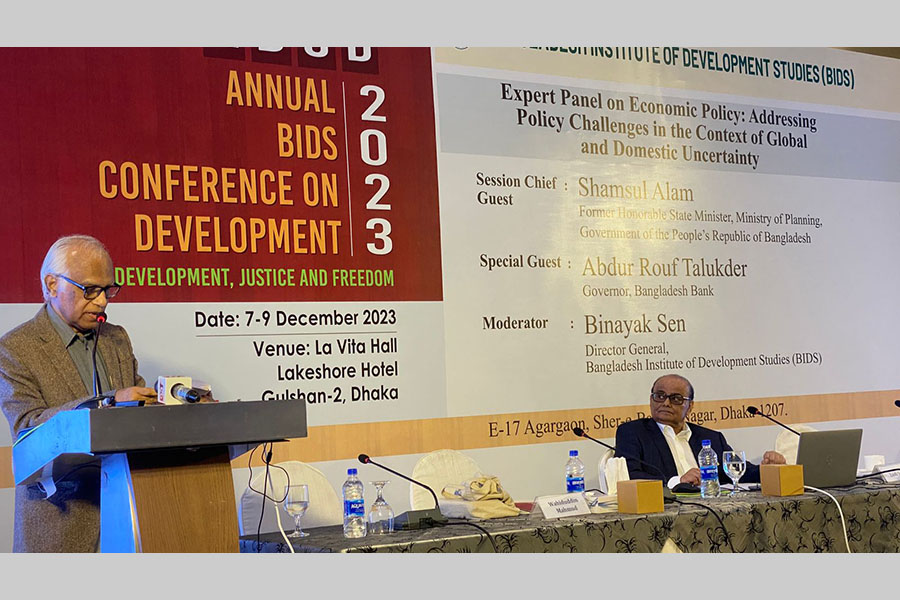
Published :
Updated :

The evolving global order and changing geo-economic landscape present both challenges and opportunities for developing countries, as highlighted by renowned economist Wahiduddin Mahmud.
He shared his insights during a public lecture titled "Evolving Global Order and Geo-economics: Implications for Less Developed Countries" at the annual BIDS (Bangladesh Institute of Development Studies) conference in Dhaka.
The session, moderated by Policy Research Institute Chairman Zaidi Sattar, featured discussions with key figures including Selim Raihan, Executive Director of SANEM (South Asian Network on Economic Modelling), and Dr. Binayak Sen, Director General of BIDS.
Mahmud emphasised the significance of strong public support for governments to effectively align political and foreign economic interests. He pointed out that this support is crucial to tackling the exploitation of developing countries by multinational companies. He also noted the distinct nature of the current geopolitical tensions between superpowers, particularly the US and China, compared to the Cold War era.
Discussing the economic strategies of Vietnam and China, Mahmud illustrated how government involvement in privatised sectors can yield benefits.
Zaidi Sattar reflected on the shift from globalisation to economic nationalism, observing that even advocates of globalisation are adopting protectionist policies. This, he suggested, requires deep consideration by developing countries in crafting their economic strategies.
Selim Raihan commented on Bangladesh's historical non-involvement in geopolitics and its emerging role as a significant player amidst global power conflicts.
Overall, the discussions at the BIDS conference underscored the need for developing countries like Bangladesh to carefully navigate the new global order, balancing internal economic policies with external geopolitical pressures.


 For all latest news, follow The Financial Express Google News channel.
For all latest news, follow The Financial Express Google News channel.